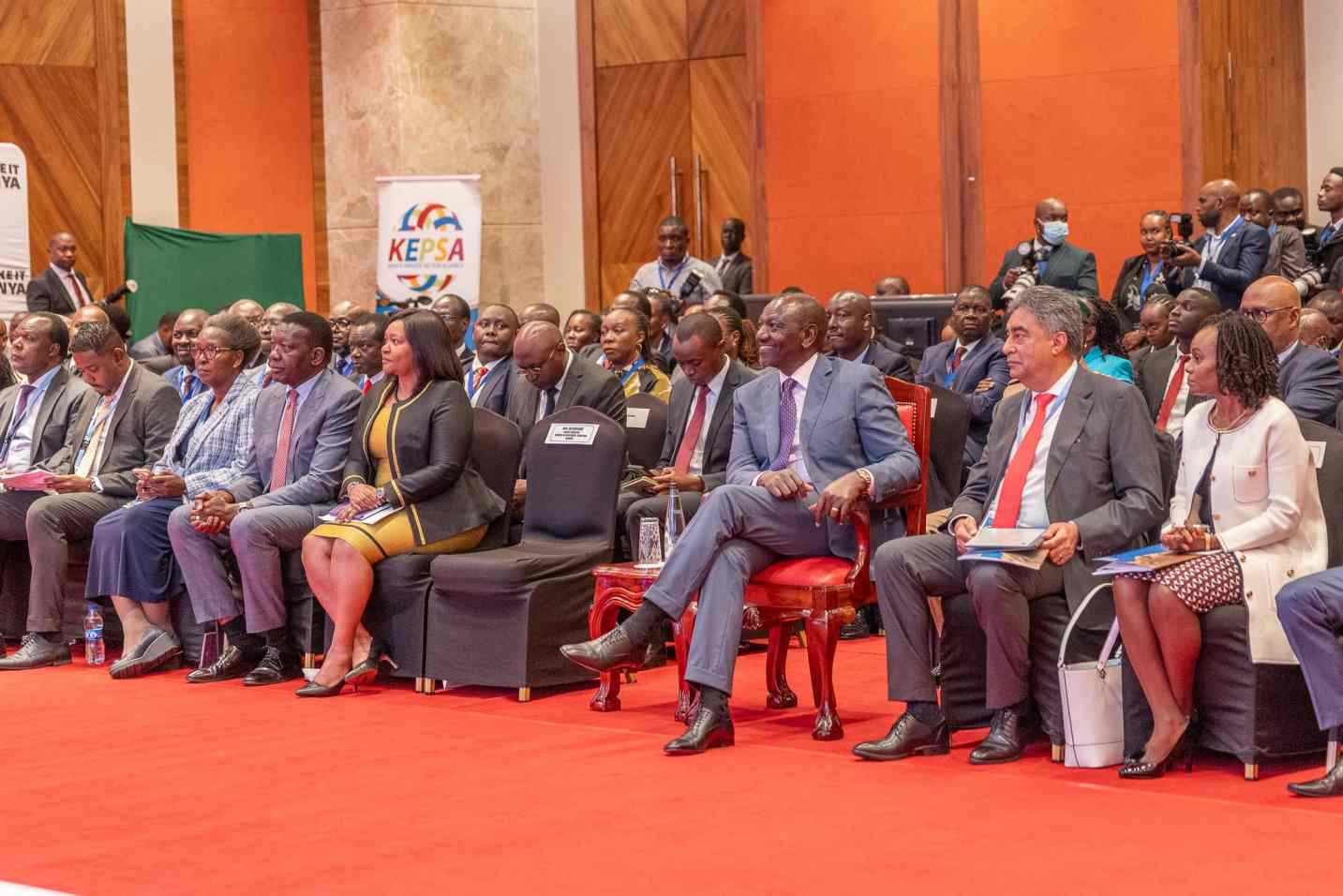President William Ruto has defended Kenya’s expanding trade relations with China, brushing off criticism from U.S. Republican Senator Jim Risch, who has questioned Nairobi’s growing alignment with Washington’s geopolitical rivals.
Speaking during the Presidential Private Sector Roundtable held at Ole Sereni, Nairobi, on Wednesday, President Ruto said the decision to strengthen ties with China was purely driven by trade and economic interests.
“We have concluded high-level discussions with China, and they have agreed to lift all tariffs on key Kenyan exports including tea, coffee, and avocado. That’s a major breakthrough for us,” Ruto stated, noting that the goal is to open markets for Kenyan products and correct the current trade imbalance.
Ruto revealed that Kenya imports over Sh600 billion worth of goods from China annually yet exports only a fraction of that amount — about five percent prompting the need for fairer trade arrangements.
“It’s partly why I have a bit of a problem with some of our friends,” he added, in a veiled reference to U.S. concerns. “But it is what I must do for Kenya. It is in the best interest of our people.”
The President indicated that similar bilateral trade talks are underway with other nations, including India, Turkey, and Canada, as part of efforts to diversify markets for Kenyan goods.
Ruto’s remarks came hours after U.S. Senator Jim Risch, the ranking member of the Senate Foreign Relations Committee, launched a legislative effort seeking to compel the Trump administration to review Kenya’s designation as a Major Non-NATO Ally (MNNA). The status, conferred in June 2024, granted Kenya military and strategic privileges with the U.S.
Senator Risch cited Kenya’s alleged ties to nations and entities considered adversaries by the U.S., including China, Russia, Iran, and militant groups such as Somalia's Al-Shabaab and Sudan’s Rapid Support Forces.
He also accused Kenya of offering financial safe haven to individuals and organizations under U.S. terrorism sanctions allegedly operating from South Sudan, Sudan, Uganda, and Somalia.
Risch further expressed concern over Kenya’s active participation in China’s Belt and Road Initiative, a massive infrastructure program that has drawn criticism from Western powers for deepening China's global influence, particularly across Africa.
The unfolding diplomatic tensions come as Kenya navigates a delicate balancing act between securing strategic partnerships and safeguarding economic interests in a shifting global order.
